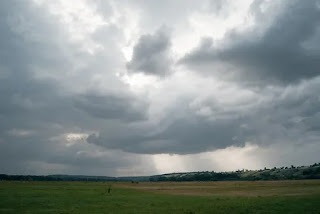Akshinth Kongara, Week 16: Time Perception and Memory

Time, some might say, is the most crucial aspect of human life. Being the backbone of the past, present, and future, it shapes the memories we cherish, the events we remember, and the stories we tell. Its capability of providing a pathway for healing, learning, creating new relationships, and enabling the pursuit of goals and aspirations proves its well-deserved spot at #1 on people’s list of values. Their perception of time not only has an effect on their daily activities but also plays a significant role in making and recalling memories. By exploring this role, the complex relationship between memory and time perception becomes clear.
Have you ever felt, while doing an undesired task, that time was moving slower than when you were doing something you actually enjoyed? Well, research has illustrated that this phenomenon, called “time dilation,” is common and not abnormal. This is because moments of heightened or intense emotion are often perceived as lasting longer than daily or enjoyable activities. However, there is actually a benefit of this occurrence. Time dilation can enhance memory encoding by deepening our attention and engagement with the experience. For example, a thrilling roller coaster ride may feel like it lasts longer than it actually does, leading to a more vivid and detailed memory of the event.
Another role time perception plays in our daily lives is in the retrieval of memories. A common misconception of memory is that its simplicity contributes to only images of the past. The truth is memories are a complex structure of the brain that evolves exponentially over time. As time passes, our memories, just as when humans get older, become increasingly susceptible to diminishing and interference, leading to forgetting, distortion, and reconstruction.
Another important aspect of the relationship between memory and time perception is the role of context in memory retrieval. Called context-dependent memory, this theory exemplifies why our memories are easily retrieved when recalled in specific temporal cues or contexts, such as the time of day, season, or significant life events. Context-dependent memory is a theory that suggests that information is optimally remembered when it is recalled in the same place in which it was initially learned. This is where the idea of “retracing your steps” came from. By retracing your steps and returning to the right context, you're helping your brain better recall the last known location of a lost item or the likely place that you'll find it.


Hello Akshinth! I would agree that time is something essential to memory and humanity because it validates our existence and gives us the impetus to actually make something of our lives. I saw this post on social media recently about this person who made a “life calendar” which is just a calendar listing that weeks that you’ve lived, which amounts to a smaller number than you would think. Seeing the bar of white decrease faster and faster, month by month gives me a feeling of dread and creates a sort of feeling of “I have only x amount of time left to do what I want to do in the world”. I would say that this creeping dread and sheer, absolute boredom as a result of the emptiness we feel is the only reason why we persevere in the fields of science and technology, and overall, to celebrate our existence and memory on this planet. Going back down on the individual scale, it is something intrinsic to humanity to leave a trace behind, as we have been learning in this semester, with works in written or visual forms that contribute to the zeitgeist of human arts and culture. I really enjoyed your perspective on the role and importance of memory and I hope that you will post more thought provoking blogs like in the future after the end of this school year as well!
ReplyDeleteHi Akshinth! I have heard people say that time is a person's most valuable asset as you mentioned in the first paragraph, and that really makes sense. We are only losing time as time goes on and we keep living our lives, and there's no way we can get that time back, giving it its immense value. I found it interesting that time dilation is a real phenomenon and that it's an extremely common thing to go through. What was more surprising to me, however, was that it could sometimes be a positive thing, such as the rollercoaster example you provided. I never considered that time dilation could ever yield any positive effects, as I have only recognized it when it made fun moments with friends and family feel fast and boring moments at school feel slow. Your analysis on context-dependent memory was really cool to me and it's really neat that that is the origin of retracing your steps.
ReplyDelete